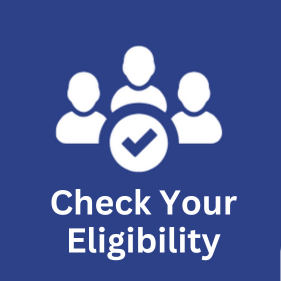STUDY IN CANADA
Are you ready to embark on a transformative educational journey? Imagine studying in a land of breathtaking landscapes, vibrant multicultural cities, and a world-renowned education system. Welcome to Canada – your gateway to international learning excellence! With a population of over 100,000, the Bangladeshi community in Canada continues to have a significant impact on the country’s multicultural landscape.International students have flocked to Canada in record numbers (Approximately 650,000), particularly those from Asia.
Unveil a world of opportunities – choose Canada for your study abroad adventure!

QUICK FACTS ABOUT CANADA:
- Second largest country in the world, after Russia.
- Longest coastline in the world, at 243,977 kilometers
- Population is about 38 million people.
- Multicultural country, with over 200 languages spoken.
- Over 100 universities and colleges in Canada.
- Popular undergraduate degrees are business, engineering, and health sciences.
- The graduation rate for undergraduate students is about 60% and graduate students is about 70%.
- Over 640,000 international students enrolled
- Top three provinces for international students are Ontario, British Columbia, and Quebec.
- Top three universities are the University of Toronto, the University of British Columbia, and McGill University.
AVAILABLE INTAKES:
Intakes in Canada | Course Offered | Deadlines |
Fall Intake | All Programs (Undergraduate and postgraduate in a university) | September – December/Early January |
Winter Intake | Selective programs | January – May |
Summer Intake | Short Term programs like Diploma programs in colleges | May-August |
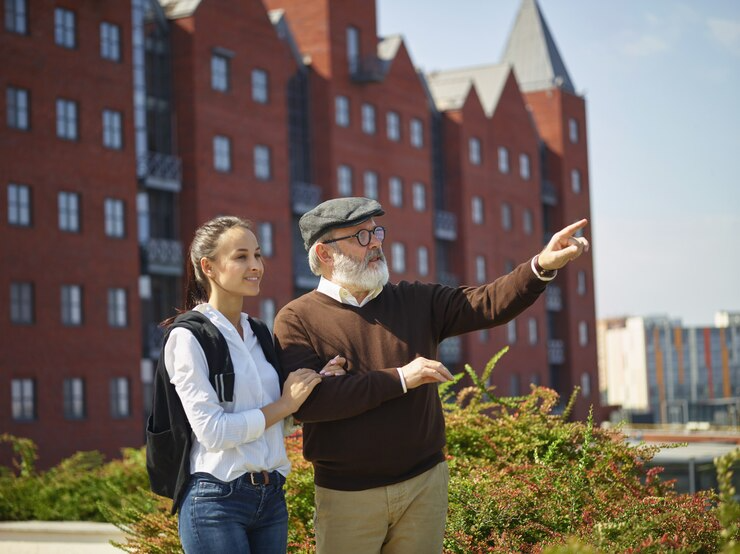
WHERE TO STUDY IN CANADA?
Apart from wishing to study at your preferred university, you might be interested in knowing the best student cities in Canada. Here is what you can expect when choosing universities in these particular student cities:
- Toronto: Located in the province of Ontario, Toronto is home to Canada’s most reputable university, the University of Toronto. It is also the largest city in Canada and boasts of being one of the world’s most multicultural cities. The city is known as the financial center of Canada, with 5 of the largest banks in the country.
- Vancouver: This young city in Canada is the third-largest metropolis. It makes it to the most livable cities in the world. Home to universities like the University of British Columbia, Simon Fraser University, University of Victoria, and more, it is best for students who wish to combine city living with laid-back outdoors within easy reach
- Montreal: Canada’s second-largest city is the highest in concentration of post-secondary students. It also features Best Student Cities, as per QS. It is home to universities like McGill, University de Montreal, and Concordia University.
- Edmonton: The capital of the province of Alberta, Edmonton, is also popularly called the Festival City. It is home to Alberta and offers students relatively decent weather to survive in Canada.
INTERESTED TO STUDY?
LET'S TALK TO OUR EXPERT COUNSELLORS

WHY STUDY IN CANADA AS AN INTERNATIONAL STUDENT?
Apart from offering education excellence through top universities in Canada, the reasons driving international student’s desire to study in Canada are manifold. Some of these are discussed in details as:
- Easy visa policy: Canada welcomes the international student population with open arms. The immigration-friendly policies and multi-cultural cities make it easier for students to live abroad.
- Cost-effective quality education: The cost of studying in Canada is relatively lower and the scholarship opportunities available are relatively more.
- Plenty of similar job opportunities for natives and immigrants: The job sector in Canada offers both natives and immigrants with plenty of options.
- Declining international acceptance rates in the US: The acceptance rate of US F1 visa has seen a decline which opens doors for Canada as the next popular study destination.
- Canada’s International Education Strategy (2019-2024) is aiming to promote global ties and diversify the education sector.
- PR is comparatively easier to obtain
HIGHER EDUCATION AND DURATION IN CANADA:
Listed are the post-secondary programs and their duration in the Canadian higher education system.
Post-Secondary Programs | Duration |
Certificate | 1 year |
Diploma | 1 to 2 years |
Advanced Diploma | 2 to 3 years |
Bachelor’s Degree | 4 years full-time study |
Post-Graduate Diploma or Certificates | 1 or 2 years |
Master’s Degree | 1 to 2 years |
Doctorate or Ph.D. | 4 to 7 years |
STUDY IN CANADA: TOP UNIVERSITIES FOR BANGLADESHI STUDENTS:
Some of the leading universities offering admission to international students are as follows:
University of Toronto – Toronto | University of Victoria – Victoria | University of Prince Edward Island – Charlottetown |
University of British Columbia – Vancouver | University of Manitoba – Winnipeg | University of Northern British Columbia – Prince George |
McGill University – Montreal | Laval University – Quebec City | Brock University – St. Catharines |
University of Alberta – Edmonton | York University – Toronto | Saint Mary’s University – Halifax |
University of Montreal – Montreal | University of Guelph – Guelph | Université du Québec à Montréal (UQAM) – Montreal |
University of Calgary – Calgary | Carleton University – Ottawa | University of Winnipeg – Winnipeg |
McMaster University – Hamilton | University of Regina – Regina | University of Ontario Institute of Technology (UOIT) – Oshawa |
University of Ottawa – Ottawa | Memorial University of Newfoundland – St. John’s | Thompson Rivers University – Kamloops |
University of Waterloo – Waterloo | Concordia University – Montreal | Mount Allison University – Sackville |
Western University – London | University of Windsor – Windsor | Lakehead University – Thunder Bay |
Queen’s University – Kingston | Ryerson University – Toronto | Trent University – Peterborough |
Simon Fraser University – Burnaby | University of Lethbridge – Lethbridge | University of the Fraser Valley – Abbotsford |
Dalhousie University – Halifax | University of New Brunswick – Fredericton | Laurentian University – Sudbury |
University of Saskatchewan – Saskatoon | University of Sherbrooke – Sherbrooke | Wilfrid Laurier University – Waterloo |
University of Sudbury – Sudbury | Athabasca University – Athabasca | Royal Roads University – Victoria |
Cape Breton University – Sydney | Université de Moncton – Moncton | Nipissing University – North Bay |
| University of King’s College – Halifax | University Canada West – Vancouver |
TOP COURSES IN CANADA:
Popular Programs and Courses in Canada: The most popular courses opted by international students in Canada are in the field of Business and Finance, Engineering, Computer Science and IT, Humanities, Health & Medicine, Life Sciences, and Media & Journalism. Here are some more programs to look forward to studying in Canada:
Masters in Engineering Management | Masters in Architecture | Masters in Psychology |
Interior design courses | BSc. Nursing | M.Ed. |
Masters in Cyber Security | Masters in Artificial Intelligence | PharmD |
Masters in Health Informatics | Masters in Social Work | Masters in Software Engineering |
B.Arch | Masters in Criminology | Masters in Statistics |
BBA in Canada | Masters in Computer Science | MS in Data Science |
BTech | Masters in Civil Engineering | MS in Business Analytics |
MBA in Canada | PG Diploma Courses |
|
TIMELINE TO STUDY IN CANADA?
Application timeline of pursuing higher education in Canada is as follows:
Month | Details |
September/October | Fill in the online application form |
January/February | Submit all the required documents |
March-May | The response is sent by the university |
May – July | Apply for and obtain a student visa to Canada |
September | Orientation session, the program commences |
DOCUMENTS REQUIRED TO APPLY IN CANADA:
- Scanned copy of the passport
- Academic transcripts from your previous institution, that is
- SSC and HSC certificate, if applying for a Bachelors course
- Bachelor’s degree certificate, if applying to a Masters course
- Any other relevant certificates of merit
- Letter of recommendation, if needed
- Proof of language proficiency
- Statement of Purpose for Canada
- Resume or CV, if needed

LANGUAGE AND SUBJECT-SPECIFIC TESTS:
Every non-English native citizen must prove his English proficiency skills whether he is planning to study, work or live in Canada. The most common English test accepted in Canada is IELTS but other exams like TOEFL, Duolingo and PTE are also acceptable. There are also some exams in Canada that are specifically required for admission into certain subjects such as GMAT or GRE tests
Given below are the average test requirements for admission in Canada.
Tests | Undergraduate | Graduate |
IELTS | 6.0-6.5 | 6.5 |
TOEFL (ibt) | 80-100 | 80-100 |
PTE | 60-65 | 60-65 |
SAT | 1100-1500 |
|
GRE |
| 280-320 |
GMAT |
| 640-660 |
MCAT |
| 492-610 (122+ each) |
CANADA STUDENT VISA:
International students must obtain a study permit to study in Canada for a duration of more than 6 months or continue ongoing education in Canada. A student visa in Canada is known as a study permit.
When should you apply for the Canada study permit?
Planning is the most important part when deciding to study abroad. Students aspiring to study in Canada are advised to apply for their study permit 4 to 6 months prior to the beginning of their classes.
What documents are required to apply for the student VISA?
- A letter of acceptance from the designated learning institution (DLI) is mandatory to apply for a student visa.
- Valid passport or travel document
- Identity proof, authorized by the resident’s government.
- A financial statement in support of the candidate’s eligibility to meet living costs and fees is also required.
- Medical information
- A letter defining your statement of intent and how will you add to the pool of resources there.
Prepare for the visa interview
After the visa application process, students are called for an interview. This process is a bit strenuous and requires a lot of preparation. Please go through a student guide for tips to crack visa interviewswith Alex
Global Consultancy.
If you are accepted at a Quebec-based institution, produce the following documents additionally:
- Letter of explanation/ SOP
- Quebec Acceptance Certificate (CAQ)

COST OF STUDYING IN CANADA:
When planning to study abroad, the tuition costs and budget planning are the first things crossing our minds.It stands out to be the most student-friendly country among others due to its affordable study options.
- Undergraduate programs- 7,700 – 23,200 CAD (annual)
- Some of the popular bachelor’s programs costs in Canada:
- Btech in Canada: 158,000 to 323,000 CAD (total)
- Postgraduate Programs: 11,600 – 27,000 CAD (annual)
- Some of the popular master’s programs to study in Canada:
- Masters in Canada: 20,000 to 30,000 CAD (annual)
- MBA in Canada: 21,000 to 105,000 CAD (overall costs).
- Masters in Data Science in Canada: 22,000 to 44,000 CAD (overall costs).
- Master’s in Business Analytics in Canada: 26,000 to 56,000 CAD (overall costs).
(All these costs are changeable and may be used for primary assumption)
SCHOLARSHIPS TO STUDY IN CANADA:
To reduce the financial burden, applicants can apply to various scholarships for international students in Canada initiated by the Government of Canada and external organizations.
Banting Postdoctoral Fellowships | Canadian and Foreign citizens | $54,219 per year (taxable) | Registration at Canadian Common CV and Research Net Account |
Canada-CARICOM Leadership Scholarships Program | Students from Caribbean Countries pursuing undergraduate and graduate programs | 4 months: $5,576; | Canadian institutes register at ‘International Scholarships Canada Application Tool’ for eligible students |
Canada-ASEAN Scholarships and Educational Exchanges for Development (SEED) | Students from ASEAN countries | 5-6 months: $8,675; | Scholarships Canada Application Tool’ for eligible students |
Queen’s University International Scholarship Bangladesh | Bangladeshi applicants with 80% or more | $15,314 | No application required |
Queen’s University International Scholarships | For international students with higher academic grades | $6,969 | No application required |
UBC International Major Entrance Scholarship | UG applicant for UBC with high academic grades | Variable | No application required |
WORK AND STUDY IN CANADA!
International students are permitted to work up to 30 hours per week during school holidays and 20 hours per week during academic semesters. Additionally, if you work on campus, a work permit is not required. For full-time jobs away from universities, a permit is necessary.
The following are some of the top part-time student jobs in Canada:
- Office assistant,
- Bookkeeper
- Customer service representative
You will be able to locate temporary jobs during the summer at:
- Festivals
- Camps
- Concerts
- Vacation spots
Did we also mention that there are many well-paying employments in Canada? Most of them are accessible to people looking for full-time work.
- Bachelors in Informatics
- Bachelors in Agriculture
- Bachelors in Nursing
JOBS AFTER STUDYING IN CANADA:
Job opportunities available for graduates from the high-demanding fields of Management, Engineering, and Medicine: Start Your Journey!
Fields | Job Profile | Expected Average Package in USD |
Management | Recruitment Professional Specialized | $62,932 |
Statistician and Actuaries | $69,404 | |
Senior Business Manager | $75,241 | |
Engineering | Chemical Engineer | $65840 |
Mechanical Engineer | $61,967 | |
Environmental Engineer | $80348 | |
Medicine | Dentist | $99,148 |
Pharmacist | $77,465 | |
Veterinarians | $77,465 |
JOBS AFTER STUDYING IN CANADA:
- Immigrant-friendly nation
- PR is comparatively easier to obtain
- For immigrating to Canada, the initial and most important step is to complete the Express Entry Profile. The invitation to apply for a PR is based on the individual score and rank in the express entry profile.
- You can find out more on the Canadian Immigration website.
HOW AGC HELPS YOU?
- Evaluating your educational background in order to position you for further study.
- Choose the best universities and programs in accordance with your professional plan.
- Ensuring your acceptance to the university and program of your choice.
- Assisting you in obtaining scholarships if you are qualified.
- Assisting you in paying your tuition fees.
- Effective and professional processing of visas.
- Assisting with the dependent visa application.
- Getting ready for your visa interview.
- Booking flights with assistance.
- We also provide airport pickup services in practically every country on earth.
- Arranging lodging and assisting you in locating employment in the nation of your choice.
If you have made your decision to study in Canada, vastly different natural and cultural experiences await you in the friendly, tolerant, and globally recognized

EXPRESS ENTRY VISA IN CANADA
It is a points-based system that is used to assess applications for skilled workers who want to immigrate to Canada permanently. It is the most popular immigration pathway for skilled workers in Canada.
To be eligible for Express Entry, you must:
- Have a valid passport.
- Meet the language requirements for the program you are applying to.
- Have a clean criminal record.
- Have enough money to support yourself and your family.
- Meet the medical requirements for the program you are applying to.
- Have one year of full-time work experience in a skilled occupation in the past 10 years.
- Have a post-secondary degree that is assessed against Canadian standards.
- IELTS minimum 6.0 band each.
Profile Creation: Once you are eligible for Express Entry, you will need to create an Express Entry profile. Your profile will be assessed using the Comprehensive Ranking System (CRS). The CRS is a points-based system that considers factors such as age, education, work experience, language skills, and ties to Canada.
Apply for PR: If your CRS score is high enough, you will be invited to apply for permanent residence. You will then need to submit a full application, including supporting documents such as your language test results, education certificates, and work experience letters.
Processing Time: The processing time for Express Entry applications varies depending on the number of applications received and the current immigration priorities. However, it typically takes between 6 and 12 months to process an application.
Confirmation: If your application is approved, you will be granted permanent residence in Canada. You will then be able to live, work, and study in Canada permanently.
Here are some of the benefits of immigrating to Canada through Express Entry:
- It is a fast and efficient way to immigrate to Canada.
- It is a points-based system, so you can improve your chances of being invited to apply by increasing your CRS score.
- It is a flexible system, so you can choose the province or territory where you want to live.
- It is a family-friendly system, so you can bring your spouse and dependent children with you.
If you are interested in immigrating to Canada through Express Entry, Alex Global encourages you to do your research and start the application process.

FAMILY SPONSORSHIP/DEPENDENT VISA IN CANADA
A dependent visa in Canada is a visa that allows the spouse, common-law partner, or dependent children of a Canadian citizen or permanent resident to come to Canada. Dependent visas are granted under the Family Class immigration category.To be eligible for a dependent visa, you must:
- Be the spouse, common-law partner, or dependent child of a Canadian citizen or permanent resident or student.
- Be admissible to Canada.
- Meet the financial requirements for dependents.
Financial details: The financial requirements for dependents vary depending on the number of dependents and the income of the sponsor. However, typically, the sponsor must show that they have enough income to support themselves and their dependents without government assistance.
Application:The application process for a dependent visa can be complex. It is important to get help from a qualified immigration consultant like Alex Global Consultancy
- Here are the steps involved in applying for a dependent visa:
- The sponsor must create an online profile in the Express Entry system.
- The sponsor must apply for permanent residence.
- The dependents must submit a separate application for a dependent visa.
- The sponsor and dependents must provide supporting documents, such as proof of relationship, proof of income, and medical examinations.
- The application will be processed by Immigration, Refugees and Citizenship Canada (IRCC).
- If the application is approved, the dependents will be issued a visa and will be able to come to Canada.
Processing time: The processing time for dependent visa applications varies depending on the number of applications received and the current immigration priorities. However, it typically takes between 6 and 12 months to process an application.
Visa Approval: If your application is approved, you will be granted a dependent visa. You will then be able to come to Canada and live with your sponsor. You will be able to work and study in Canada, and you will be eligible for permanent residence after three years.
Here are some of the benefits of being a dependent visa holder in Canada:
- You can live with your sponsor in Canada.
- You can work and study in Canada.
- You are eligible for permanent residence after three years.
- You have access to Canadian healthcare and education.
If you are the spouse, common-law partner, or dependent child of a Canadian citizen or permanent resident, or Student, you may be eligible for a dependent visa. Alex Global Consultancy will be there to help you in every step of your processing.

PROVINCIAL AND TERRITORIAL NOMINEE PROGRAMS (PNPS) IN CANADA
The Provincial Nominee Program (PNP) is a way for Canadian provinces and territories to nominate skilled workers and other immigrants who they believe would be a good fit for their economies.Each province and territory has its own PNP, with its own eligibility criteria and application process.
To be eligible for a PNP, you must meet the requirements of the province or territory you are applying to. These requirements typically include having a
- Certain level of education
- Work experience
- Language proficiency.
Once you have been nominated by a province or territory, you will be able to apply for permanent residence in Canada through Express Entry.
The PNP is a popular way to immigrate to Canada, as it can offer a faster and more direct path to permanent residence than other immigration programs.Here are some of the benefits of immigrating to Canada through a PNP:
- It can be a faster way to immigrate to Canada.
- You can choose the province or territory where you want to live.
- You may be eligible for additional support from the province or territory, such as job placement assistance or language training.
HERE ARE SOME OF THE PNPS IN CANADA:
- Alberta Immigrant Nominee Program (AINP): The AINP is designed to attract skilled workers, entrepreneurs, and international students to Alberta.
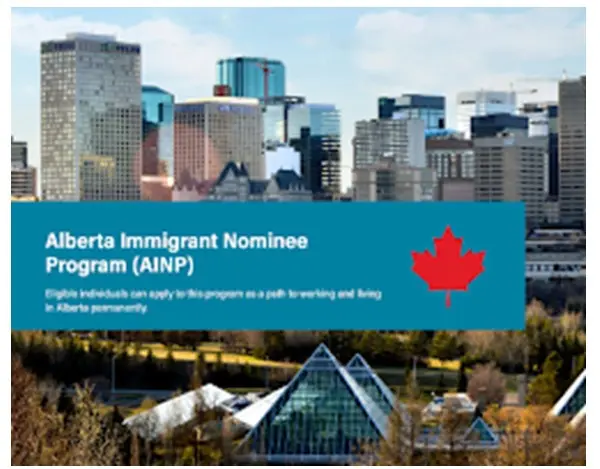
- British Columbia Provincial Nominee Program (BC PNP): The BC PNP is designed to attract skilled workers, entrepreneurs, and international students to British Columbia.
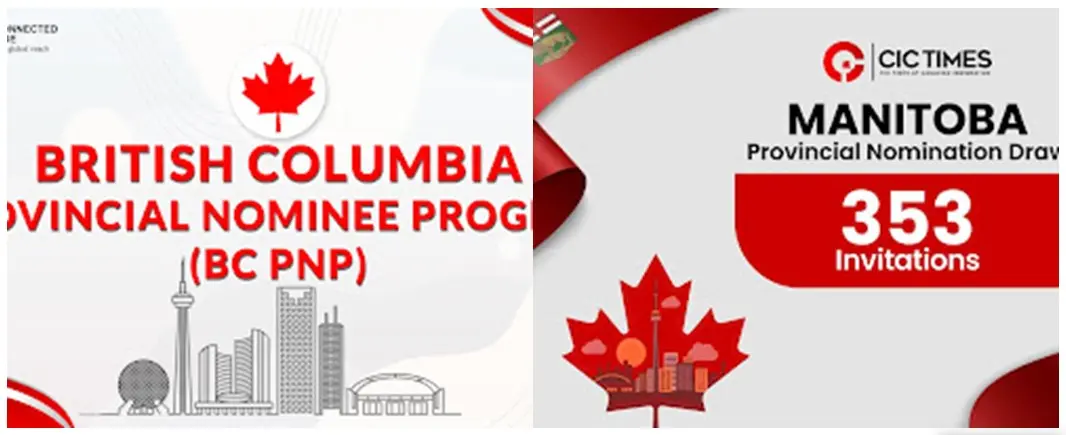
- Manitoba Provincial Nominee Program (MPNP): The MPNP is designed to attract skilled workers, entrepreneurs, and international students to Manitoba.
- New Brunswick Provincial Nominee Program (NBPNP): The NBPNP is designed to attract skilled workers, entrepreneurs, and international students to New Brunswick.
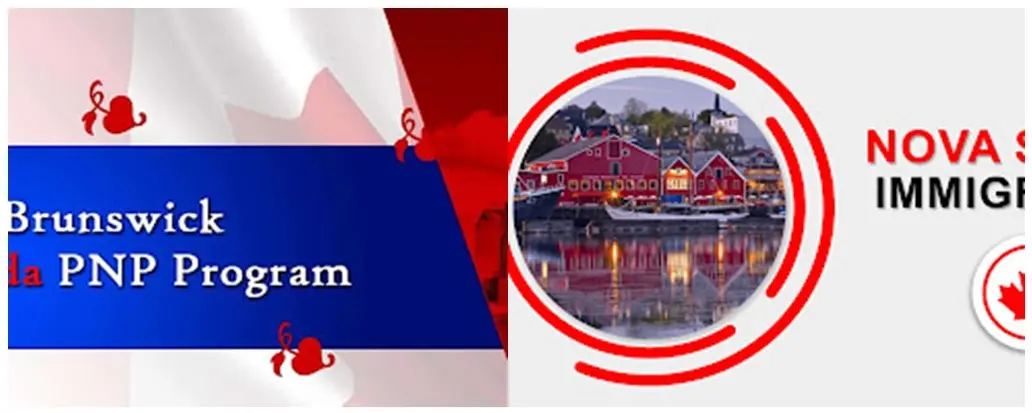
- Nova Scotia Nominee Program (NSNP): The NSNP is designed to attract skilled workers, entrepreneurs, and international students to Nova Scotia.
- Ontario Immigrant Nominee Program (OINP): The OINP is designed to attract skilled workers, entrepreneurs, and international students to Ontario.
- Prince Edward Island Provincial Nominee Program (PEI PNP): The PEI PNP is designed to attract skilled workers, entrepreneurs, and international students to Prince Edward Island.
- Quebec Investor Program (QIIP): The QIIP is a program for wealthy investors who want to immigrate to Quebec.
- Saskatchewan Immigrant Nominee Program (SINP): The SINP is designed to attract skilled workers, entrepreneurs, and international students to Saskatchewan.
- Yukon Nominee Program (YNP): The YNP is designed to attract skilled workers, entrepreneurs, and international students to Yukon.

Ans. According to QS World University Rankings, some of the top universities in Canada are University of Toronto, McGill University, the University of British Columbia, Université de Montréal and the University of Alberta.
Ans. The University of British Columbia is considered as the best university in Canada for international students according to Times Higher Education. Besides, the University of Toronto, McGill University, University of Montreal are also some of the globally leading Canadian universities offering international education.
Ans. Based on the global subject scores according to U.S. News and World Report, the top universities for engineering in Canada are
- University of Toronto (73.3)
- University of Waterloo (73.2)
- University of British Columbia (71.7)
- University of Alberta (69.6)
- McGill University (67.0)
- University of Montreal (59.9)
Ans. Some of the popular PG diploma courses in Canada are Artificial intelligence, Network Security, Information and Communication Technology, Business Administration, Marketing, Health Administration, Nursing Practices, Paralegal, Biotechnology and Financial Management.
Ans. Studying in Canada is more affordable as compared to studying in USA or UK. The average yearly cost of studying in the universities in Canada is around 7 to 20 lakh BDT.
Ans. Canada is a welcoming country with a moderately selective admission policy. The acceptance rate of the top universities in Canada ranges around 40-60%. Some of the best Canadian universities with high acceptance rate are University of Brunswick (74%), Ryerson University (55%), Lakehead University (55%), University of Montreal (50%), University of Guelph (50%).
Ans. International applicants planning to study in Canada need academic transcripts, standardized test scores like GMAT or GRE, SOP, academic and professional LOR, updated resume, and immigration details.
Ans. International applicants planning to study PhD in Canada primarily need a master’s degree in a relevant field. Students need to demonstrate excellent academic standing and competitive GRE or GMAT score. Students also need satisfactory English proficiency test scores, strong motivation and potential to research in Canada.
Ans. To avail a Canada student visa, international students must submit a letter of acceptance from a Canadian institute of higher education. Additionally, students require a proof of identity, proof of finance availability, medical certificate, police certificate, and proof of intention to leave Canada after study.
Ans. Fall intake is the most preferred admission session in Canada as Canadian universities accept maximum students in this intake. In addition, students get enough time to acclimatize to the climate and studies in Canada in the fall intake. Winter is the second most preferred admission intake in Canada.
Ans. The universities in Canada accept international students in 3 intakes of fall, winter and summer. Fall is the most popular intake with admissions opening for maximum number of programs while summer is the least populated intake.
Ans. Students can apply for admission in the fall semester from November of previous year till end of March of the ongoing year. International students are recommended to apply at the earliest to be considered on a first-come-first-serve basis.
Ans. Business, Science and Technology being the in-demand disciplines, some of the in demand programs in Canada are Project Management, Computer Programming and Analysis, IT, Logistics and Supply Chain Management and International Business Management.
Ans. The B-schools in Canada offer several varieties of MBA based on the purpose and lifestyle of the student. MBA in Canada is considered as one of the highest paying degrees offered to the international students. The average base salary of MBA graduates in Canada is 83,000 CAD. With time, MBA students in Canada earn over 250,000 CAD per annum.
Ans. Yes, Canadian degrees are recognized worldwide. However, students pursuing MBA in Canada tend to work in Canada with a post-study work visa due to the lucrative salary packages available and quality lifestyle.
Ans. Yes, 5 of the top universities in Canada rank among the top 100 universities globally for Computer Science according to US News and World Report.
Ans. The cost of pursuing a PhD in Canada is variable across universities, however, it is more affordable than the universities in USA or UK. International students in financial need can avail various scholarships and grants to fund their PhD in Canada.
Ans. The scholarships to study in Canada are majorly merit-based and few are need-based. Some universities automatically consider meritorious students for scholarships at the time of admission. Students need to separately apply for other scholarships and submit required documents within the stipulated tithe me.
Ans. According to employability rank of Times Higher Education, the top universities in Canada are University of Toronto (#1), University of British Columbia (#2), McGill University (#3), University of Montreal (#6), McMaster University.
Ans. According to Emolument, Executive MBA (155,000 CAD p.a.) is the highest paying degree in Canada followed by Doctorate (150,000 CAD p.a.). LLM graduates in Canada earn 114,000 CAD p.a. on an average, while MBA graduates secure 110,000 CAD per annum.

